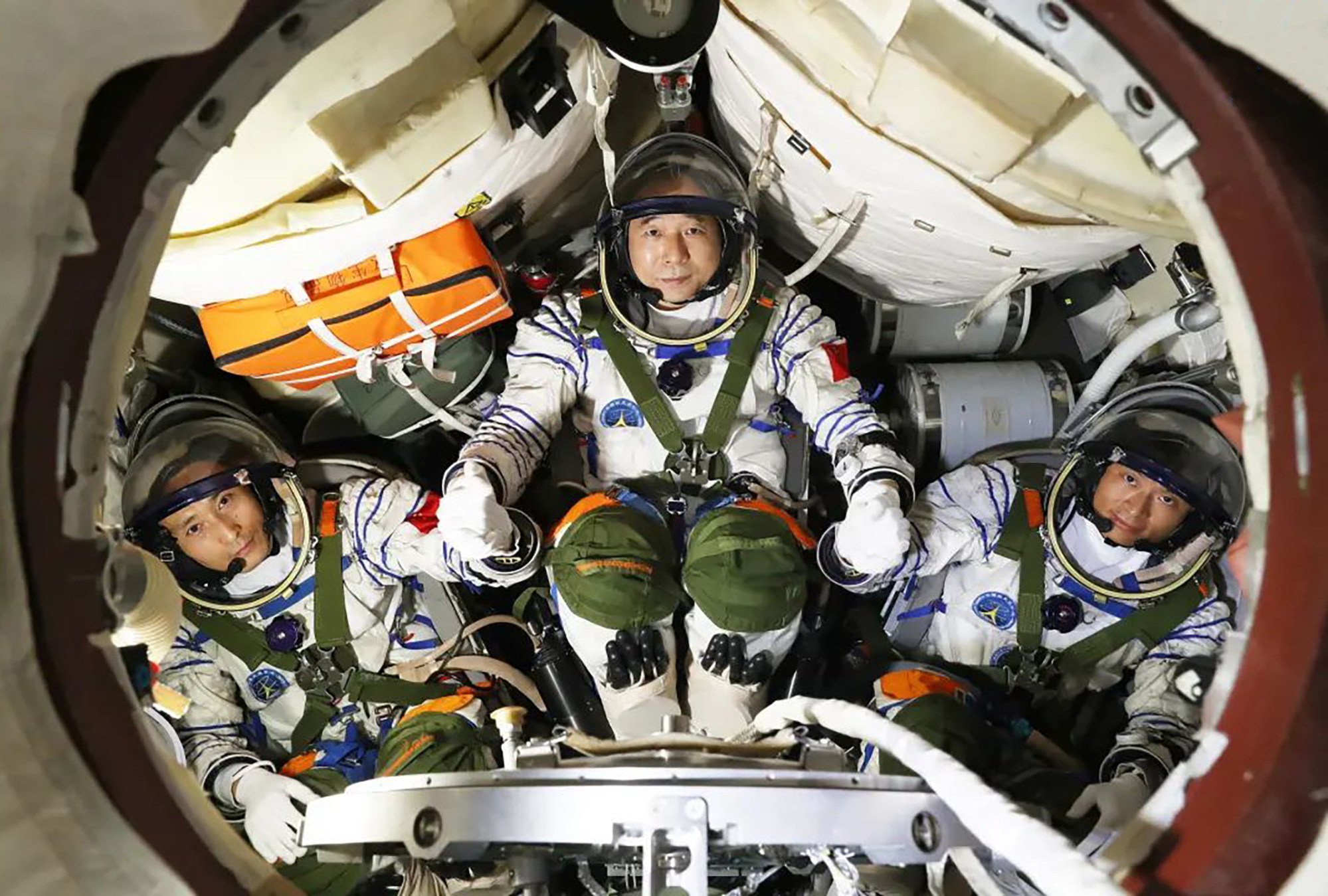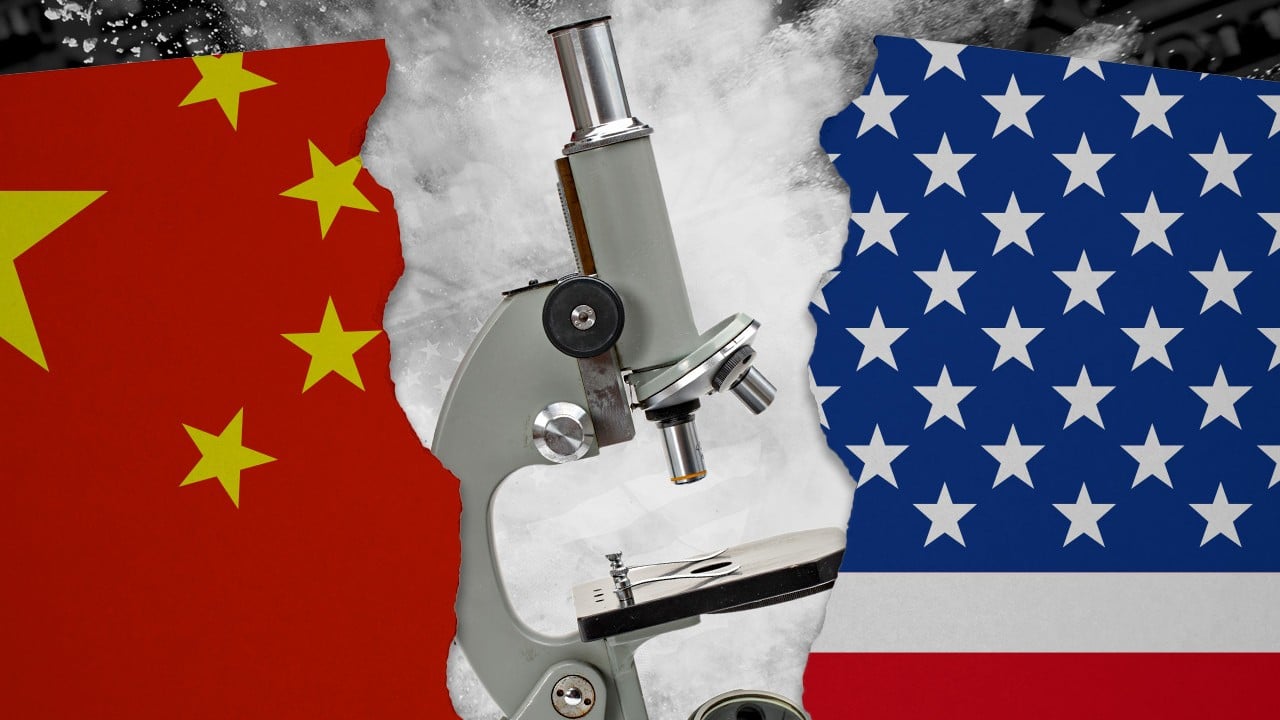It remains a mystery who headed or attended the meeting, and no details have been revealed about when or where it took place or what was discussed.
Advertisement
Analysts pointed to a wide range of factors behind Beijing’s secrecy, including worries about policy pressure from Washington, fears about espionage and potential links between the commission and the People’s Liberation Army.

Unwanted attention
“I think China wants to avoid attention from the West so that it can push forward its science and tech development agenda with relatively less intervention and obstacles,” said Xie Maosong, a senior researcher at the China Institute for Innovation and Development Strategy at the Chinese Academy of Sciences.
Beijing later walked those goals back to try to conform to international norms on industrial policy, though few people believe the policy itself ceased to exist.
How Beijing plans to lead the world with ‘Made in China 2025’
How Beijing plans to lead the world with ‘Made in China 2025’
“Excessive media fanfare led to over-interpretation [by the US],” said Sun Yutao, a professor at the Dalian University of Technology and an expert on science policy.
Advertisement
Sun said Beijing was justified in keeping a low profile about the policymaking body for the sensitive science and tech sector, noting that China was “increasingly concerned about espionage activities”.
China has set a goal to become a science and technology power. According to a development plan released in 2021, Beijing aims to survive challenges stemming from a “complicated international environment” with strategic science programmes in areas including artificial intelligence, quantum information, integrated circuits, brain science as well as deep space, deep earth, deep sea and polar exploration.
Advertisement
The plan, which covers the period through 2035, also vowed to deepen reform in science and tech management and improve governance.
A more powerful planner
Under the reform measures announced in March, the commission will take over strategic planning and policy setting for the country’s science and technology development from MOST, which will be relegated to handling administrative duties for the commission.
Advertisement
The change was intended to “unify leadership” to “advance the establishment of the national innovation system and technology structural reforms”, according to the reform scheme jointly released by the party and central government.
Advertisement
“We should improve coordination in science and tech management, focusing on strategic goals and have the perseverance to hammer away until key tasks are done,” Ding told a National People’s Congress Standing Committee meeting on August 22.
In that speech, Ding said the reform should also eye higher level of coordination between the military and local governments.
A source familiar with science policymaking said the new commission would probably even oversee the tech branch of the military, or the Science and Technology Commission (STC) under the powerful Central Military Commission.
“It’s about top-level management of various ministries … and it’s possible that even the military’s science and technology committee will have to come under its management,” said the source, who requested anonymity due to the sensitivity of the issue.
The STC was among the bodies set up in 2016 during Beijing’s massive military overhaul and is in charge of the military’s technology and science drive as well as implementing the military-civil fusion strategy, which aims to merge the military’s technological strengths with those of the private sector.
A hushed history
The highly centralised leadership resembles what Beijing had in the 1950s when scientists were led by Nie Rongzhen, then director of the National Science Commission and vice-chairman of China’s military commission to develop missiles, nuclear bombs and man-made satellites, according to Chen Daoyin, an independent political scientist and former professor.
“The situation is similar nowadays,” Chen said. Though it faces challenges from tech export sanctions and investment bans by the US and its allies, China wants to achieve indigenous innovation in key areas and set up a national system to mobilise resources nationwide for key tech projects, he said.
“Members of the commission are supposed to be loyal technocrats with high prestige. The revelation of key personnel could shed light on the direction or development of China’s innovation initiatives,” he said.
“So out of concern for national security and the scientists’ personal safety, the organisation is expected to operate in high secrecy,” he said.
Secrecy is nothing new in technology competition. The more advanced it is, the more secretive it shall be
A Chinese rocket scientist said it would be “very easy” for the US to “sabotage China’s progress if Beijing makes everything transparent”.
“Secrecy is nothing new in technology competition. The more advanced it is, the more secretive it shall be. Because once it is leaked, it will ruin the whole nation’s strategy going forward and set us back for many years,” said the scientist, speaking on the condition of anonymity.
“But I don’t think such a low-key approach means China is closing our door for international cooperation in science and tech.
“For example in space technology, the US has refused to work with us, so be it. We do research on our own while continuing to work with those who still want to work with us – like Russia – to find synergies.”
Challenges to keeping quiet
However, it could be hard to achieve a high level of secrecy, according to Michael Frank, a senior fellow at the Wadhwani Centre for AI and Advanced Technologies under the Washington-based think tank the Centre for Strategic and International Studies.
“It is easy to keep a commission’s meeting notes secret, but far more difficult to wrap the actions of the nation’s researchers, labs, universities, companies and investors in a shield of secrecy,” Frank said.
“That is not to say the commission will be broadcasting its every deliberation and action, but that it will probably function with the same level of opacity as any other part of the Chinese government these days,” he said, “The caveat is that there may be internal objectives that are not publicised.”
China’s young talent to play leading role amid US tech war, self-reliance push
China’s young talent to play leading role amid US tech war, self-reliance push
Neil Thomas, a Chinese politics fellow at the Asia Society Policy Institute’s Centre for China Analysis, said more centralised decision-making about technology policy in Beijing could help direct resources towards priorities such as AI and semiconductors, but could hurt China in the long run if it discouraged entrepreneurial innovation and crowded out investment in promising new areas of research.
“More opaque policymaking in Beijing will feed US suspicions about the purposes of state-sponsored research in China and contribute to an increasingly difficult political environment for scientific cooperation between the two countries,” Thomas said.
Additional reporting by Sylvie Zhuang
Advertisement


